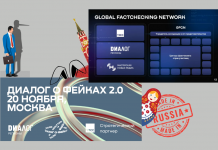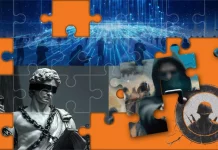
New Publications
Two of our colleagues, Jakub Janda and Ilyas Sharibzhanov, published on the Atlantic Council an overview of six main narratives that Russian disinformation pushed during 2016. Namely, they were:
- Europe is facing Armageddon due to migration
- Europeans want to recognize Crimea as Russian but the EU stands in the way
- The murder of British MP Jo Cox was an inside job to sway the Brexit vote
- Ukraine isn’t part of Europe
- Latvians are perpetual fascists
- Merkel, Hollande and the EU are to blame for the migrant crisis
Putin’s Champion Award
Our awards have been recently mentioned by For helping Putin’s dictatorship by blaming the war in Ukraine on the United States and absurdly claiming Washington did it to “keep the concept of NATO alive”., reminding us of the first winner from January – Marine LePen.
Our Expert Jury consisting of Jessikka Aro, Anton Shekhovtsov, John Schindler and Michael Weiss regularly vote on the dangerousness of several candidates you can nominate via e-mail or Twitter.
In the meantime, we already have the 3rd Putin’s Champion Award Recipient:
Oliver Stone
For helping Putin’s dictatorship by blaming the war in Ukraine on the United States and absurdly claiming Washington did it to “keep the concept of NATO alive”.

The Expert Jury ranked his Putin-supportive job with
2,4
(out of 5) mark.
Weekly update on Kremlin disinformation efforts
Food for Thought from the Munich Security Conference Foundation
The Munich Security Conference Foundation published an annual report about the state of international security titled “Post-Truth, Post-West, Post-Order?” Alarmingly, according to the analysis, the number of people living in democracies and believing in authoritarian solutions increases. This is only highlighted by the fact that Russia and China, two countries representing authoritarianism in the modern world, ranked very high on the scale comparing budgets and social media reach of state-funded public international broadcasters.
Kremlin’s lies about killing civilians in Syria disproved
According to the new report called “Breaking Aleppo” published by the Atlantic Council, Russian forces bombed Syrian hospitals, using incendiary munitions and cluster bombs. The Syrian troops also used chlorine gas a lot more than believed. Furthermore, these revelations are enhanced by the MSC report mentioned above, which states that only 20 % of air strikes in Syria in 2016 were targeted at Daesh/ISIS.
In the documentary called “Putins Kalter Krieg” broadcasted by the ZDFzoom, the defector “Igor” from FSB speaks in an interview about how Russia wants to destabilize the Western countries. According to the BfV director Hans-Georg Maaßen, the FSB support the flow of Islamists to Germany.
The Estonian Information Board published a second overview of International Security and Estonia. It is mostly focused on activities of the Russian Federation. The report describes Russian influence operations and the main narratives it spreads in the Baltic states. It also mentions the harassment of European diplomats in Moscow and the very actual topic – cyber attacks.
NATO far from obsolete
Despite recent claims of both Russian and American leaders, it seems that a lot of European citizens still considers NATO to be an important organization for ensuring their safety. Russians, on the other hand, perceive the organization mostly as a threat. Find out more details in the results of the opinion polls conducted by Gallup.
Scientists as tools of propaganda
Report about British academics visiting Crimea in order to carry out excavations linked with the Crimean War and develop “archaeological tourism” and promising a joint project with the Bristol University appeared in Russian media recently, for example in RIA Novosti. The information seems to be manipulated since the University denied any connection to the three men. None of them is currently employed by the institution. Such kind of cooperation between the University and Russia would breach Ukrainian law as well as the UN sanctions.
Euroatlantic experts on disinformation warfare
Even though Donald Trump has criticised almost everyone so far, he always finds words to defend the Russian president. Watch Garry Kasparov explain the relationship between the two leaders for Bloomberg.
Steven L. Hall, formerly working in the CIA managing Russian operations, explains why it is so problematic to share intelligence with the Russian Federation even in the apparently commonly beneficial areas like organized crime or counter-terrorism.
Samanth Subramanian from Wired has taken a look at the lives and motivations od Macedonian teenagers making money by publishing pro-Trump disinformation online.
Kremlin Watch is looking for interns!
We are looking for new colleagues to start an internship in the Kremlin Watch programme in our think-tank. The main requirements are: interest in the study of disinformation campaigns and security policy, knowledge of European media and institutional environments, and a perfect knowledge of English. Find out the details on our website. The deadline for submitting the application is March 3rd 2017.
Kremlin Watch Reading Suggestion
Russia and Central and Eastern Europe: Means of Pressure and Channels of Influence;
by Pavel Baev, published by the Russie.Nei.Visions
Since the annexation of Crimea, Russia has been shifting its influence operations from Western Europe towards East-Central Europe, where it has increased its economical, political and military pressure. Russia has used various instruments in order to boost its influence in the region, but none of them can be marked as successful.
Using energy as leverage is not a functional policy for Russia anymore due to the shifts in the global energy market and Russia’s lack of success in negotiations. As for strategic allies, Putin did find new friends in the region recently, however, they are not so interested in breaking the EU apart as he would like them to be. On top of that, it has become harder for Russia to use money as a way of influence given its bad economic situation. The massive propaganda and disinformation campaigns caught Europe by surprise, but it managed to propose effective countermeasures. Russian military pressure, especially in the Baltics, met with NATO’s determined stance to protect its allies.
Kremlin Watch is a strategic program of the European Values Think-Tank, which aims to expose and confront instruments of Russian influence and disinformation operations focused against liberal-democratic system.







